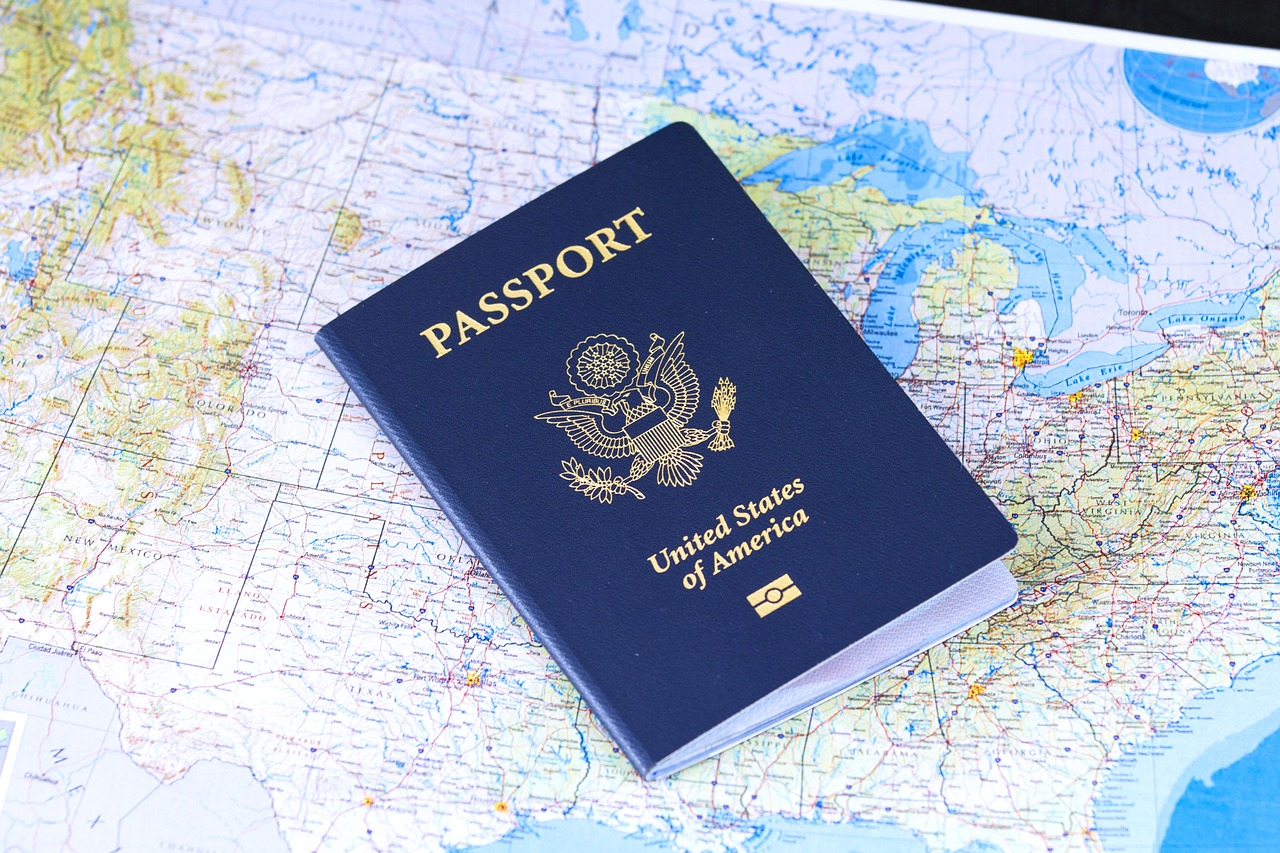Best non extradition countries to disappear in 2023 | Non-extradition countries
***
Contact us and speak with an international tax lawyer: https://yourinternationaltaxlawyers.net
Discover our courses
COURSE 1 TAX HAVENS COURSE - GLOBAL CITIZEN COURSE - BUSINESS INTERNATIONALIZATION COURSE
https://yourinternationaltaxlawyers.net/index.php/course-1
COURSE 2 Learn 10 hidden strategies used by elites and multimillionaires to reduce their taxes, and start saving taxes right NOW, even without moving abroad
https://yourinternationaltaxlawyers.net/index.php/course-2
***
When considering whether to extradite a person accused or convicted of a crime, a Country should choose where to stand.
Non-extradition countries decide not to extradite a person accused or convicted of a crime,
Non-extradition countries don’t mean free to run away and do not take a stand for justice. For example, there is no extradition treaty between the UAE and the United States. However, there is an extradition agreement between the UAE and Interpol.
What country can you not be extradited from?
Russia and China
Both countries are without extradition to US, which means you cannot be deported to another country to stand trial if you are accused of a crime in either country. But there could be cooperation.
It is especially beneficial for tourists or residents, as it means they can rest assured that they will not be subject to the laws of another country and should be accused of a crime while in China or Russia.
The Gulf States
Gulf States have long been considered a “safe haven” for outlaws due to their non-extradition policies. This means people can flee to these countries and be safe from extradition back to their home country to face justice.
This has made the Gulf States a popular destination for people with problems with the law on the run, and has led to a growing underworld in these countries without extradition to us.
Which are the Gulf States countries?
Saudi Arabia, Kuwait, the United Arab Emirates, Qatar, Bahrain, and Oman
There are also some drawbacks to the non-extradition policies of the Gulf States. First, they do not want to set a precedent of extraditing, so they often refuse to deport even some notorious people.
The Gulf States non-extradition policies will protect anyone. However, there are some drawbacks to this situation. Before deciding to travel to the Gulf States, it is essential to be aware of these.
Venezuela
Venezuela is a good country to go to because of their non-extradition policies. This means that if you got a bunch of cash or just a warrant in your home country for a felony, you can find refuge in Venezuela.
Additionally, Venezuela has a low living standard, which makes it a great destination for budget travelers.
Lately, it has changed its politics because of the attitude of the U.S. government. They have lifted sanctions that could affect extradition policies between these two countries. This generates the possibility of exchanges of prisoners. However, it is a top world destination from which it wants to escape.
Ethiopia
Ethiopia had not extradited any person since 2003. Exactly when they extradited four men to the United States. The reasons for this are many and varied. These can be boiled down to a few key points.
- Firstly, Ethiopia does not have an extradition treaty with any country.
- Secondly, the Ethiopian government does not extradite its citizens, regardless of the crime.
- Thirdly, Ethiopia does not have the death penalty.
Finally, Ethiopia has a policy of not deporting people who are wanted for political offenses. This policy is in place because the Ethiopian government does not want to be seen as complicit in the persecution of political dissidents.
Uganda
The government believes each inhabitant should have a trial in Uganda for any crimes an individual is accused of. Therefore, deporting them to another country would violate their rights. Uganda also does not have an extradition treaty with any other country, so there is no legal basis for extraditing its citizens.
Montenegro
Montenegro is a non-extradition country. The government does not have an extradition treaty with any other country. Therefore, the only way a Montenegrin citizen can be deported is if they are wanted for a crime that the government there is likely to pursue.
Guatemala
However, some possible reasons Guatemala might be a beautiful destination for someone fleeing from extradition are its diverse landscape and proximity to other countries. It makes it effortless to cross borders if necessary. Additionally, Guatemala has a relatively low living cost. It could appeal to someone on the run and trying to avoid detection.
Cuba
Cuba is one of the unique countries in the world, and its non-extradition policy is one of the things that makes it so unique. Since the Cuban Revolution in 1959, the Cuban government has had a policy of not extraditing its citizens to other countries.
Their policy is based on the belief that an extradition is a form of political persecution and that the Cuban state is responsible for protecting its citizens from such persecution.
According to a "Reuters" report, the last time Cuba released political prisoners was around 2015. However, the destination is phenomenal if your problems are not politically tinged.
This policy has been tested on several occasions, most notably in the case of terrorist Luis Posada Carriles. Carriles was wanted in Venezuela for his involvement in the 1976 bombing of a Cuban airliner, which killed 73 people. Despite extensive pressure from the Venezuelan government, Cuba refused to extradite Carriles, citing the policy.
Some have criticized the Cuban non-extradition policy and argue it provides a haven for criminals and terrorists. However, the Cuban government has always maintained that it will only extradite criminals if there is evidence that they will receive a fair trial in the receiving country.
The non-extradition policy is one of the many things that makes Cuba a unique and special country. Moreover, it is a testament to the Cuban government's commitment to protecting its citizens from political persecution.
No extradition countries don’t always keep up their word
There are several reasons why some countries with extradition treaties with the United States may not always live up to their end of the bargain. First, in some cases, the government may be reluctant to extradite a wanted individual if they believe the person will not receive a fair trial in the United States.
Additionally, some countries may be concerned about the potential for the United States to abuse its power if they deport someone to face charges. The United States has been known to use extradition to target political opponents, and some countries may not want to be complicit.
In other cases, a country may be unwilling to extradite someone for logistical reasons.
For example, a country may not have the resources to track down the wanted individual or may not have the legal authority to deport someone to the United States. Additionally, some countries may be reluctant to extradite their citizens, even if the United States wants them.
Extradition can be a complicated and lengthy process, and some countries may not be willing to go through all that for someone who may not even be convicted in the United States.
Ultimately, it is up to each country to decide whether to extradite someone to the United States or not. Several factors go into that decision, and not all countries will always keep up their end of the bargain.
Non-Extradition Countries VS Countries With No Diplomatic Ties
When researching whether or not a country extradites, it is essential to consider the difference between countries with no extradition treaty with the United States and countries with which the United States has no diplomatic relations. Extradition is the formal process by which one country transfers a suspected or convicted criminal to another.
The United States has extradition treaties with over 100 countries. Generally, these treaties require certain things from the country to which extradition is done. For example, they sought a criminal justice system similar to ours.
The offense for which extradition is sought is a crime in both countries. However, there are several countries with which the United States does not have extradition treaties. It does not mean these countries do not extradite criminals, but that a formal treaty does not govern the process.
In some cases, these countries may be willing to extradite criminals to the United States on a case basis.
There are also several countries with which the United States does not have diplomatic relations. It means the United States does not have an embassy or consulate in these countries and does not exchange ambassadors with them.
In some cases, the United States may have a limited diplomatic presence, such as an Interests Section.
Famous cases of non-extradition
In recent years, several high-profile cases have involved attempts by one country to deport an individual from another.
Often, these cases include charges of serious crimes, such as murder or terrorism. However, extradition is not always successful, and there have been several notable cases where individuals have evaded extradition.
Julian Assange
One high-profile case of unsuccessful extradition occurred in 2012 when British authorities attempted to extradite Julian Assange, the founder of WikiLeaks, to Sweden to face questioning over allegations of sexual assault.
Assange had taken refuge in the Ecuadorian embassy in London and was granted political asylum by Ecuador. However, British authorities could not force Assange out of the embassy despite repeated attempts.
He remained there until 2019, when he was arrested by British police and sentenced to 50 weeks in prison for breaching his bail conditions. Now, their extradition case is still ongoing. In addition, he’s facing several years in jail for revealing sensitive information.
El Chapo Guzman
Another well-known case of extradition failure occurred in 2016 when the United States unsuccessfully attempted to extradite Joaquin “El Chapo” Guzman from Mexico.
Guzman, a powerful Mexican drug lord, was captured by Mexican authorities in 2014. Then, he was waiting for extradition to the United States on drug trafficking charges.
However, he escaped prison in 2015 and remained at large until his recapture in 2016. So now he’s doing time at ADX Florence.
Vijay Mallya
One notable example occurred in 2017 when a British court approved the extradition of Vijay Mallya, an Indian business tycoon, to India to face fraud and money laundering charges.
A British court had denied Mallya's extradition after he lived in the United Kingdom for several years. However, the British court ultimately ruled he should be extradited, and he was flown to India in 2018 to stand trial.
Extradition is a complex legal process, and there are often several hurdles that must be overcome before an individual can be successfully deported from one country to another.
However, as the cases of Julian Assange, Joaquin Guzman, and Vijay Mallya illustrate, it is not always possible to avoid extradition, and individuals who are wanted by another country may eventually be brought to justice.
***
TAG: best country to disappear in, non extradition countries 2022, non extradition countries 2023, non extradition countries 2024, non-extradition countries, non extradition countries, non extradition country, countries without extradition, us non extradition countries.
***
Contact us and speak with an international tax lawyer: https://yourinternationaltaxlawyers.net
Discover our courses
COURSE 1 TAX HAVENS COURSE - GOING GLOBAL COURSE - BUSINESS INTERNATIONALIZATION COURSE
https://yourinternationaltaxlawyers.net/index.php/course-1
COURSE 2 Learn 10 hidden strategies used by elites and multimillionaires to reduce their taxes, and start saving taxes right NOW, even without moving abroad
https://yourinternationaltaxlawyers.net/index.php/course-2
***



